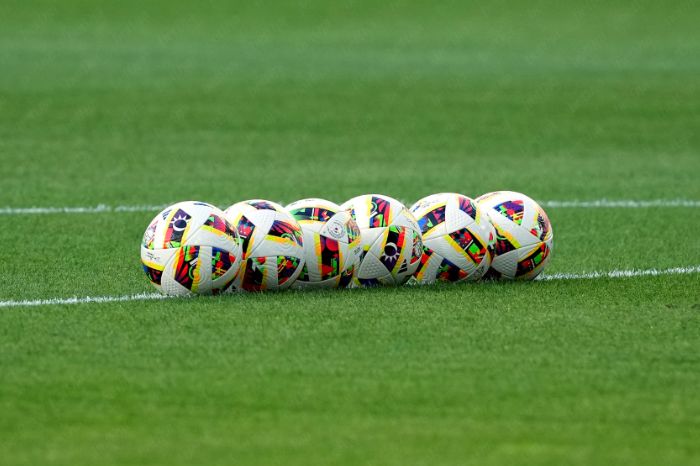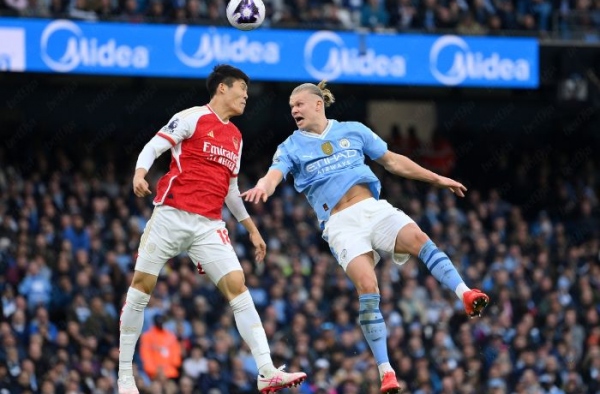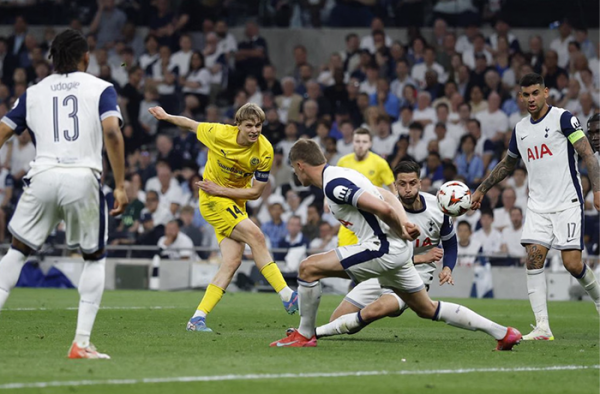Follow @Emiearth on X for more expert analysis.
In Africa and beyond, the pressure of carrying a famous surname can be both a blessing and a burden.
Take André and Jordan Ayew, sons of Ghana’s football hero Abedi Pele. Their father was a three-time African Footballer of the Year, nicknamed “The African Maradona.” Growing up in France, the Ayew brothers had early access to top academies, but they’ve always known that their careers would be judged against their father’s shadow.
New tournament. Same goal ?
— Bet9ja: The home of #betBOOM! ? (@Bet9jaOfficial) May 20, 2025
Bet9ja are proud to be the official sponsor of @NGSuperEagles 2025 AFCON campaign!
Let’s Do It Again, Super Eagles ??? pic.twitter.com/4V91lWcCSN
That desire for individuality is a common theme among football’s second generation. Take Timothy Weah, for example, the son of George Weah, the only African ever to win the Ballon d’Or. Though eligible to represent Liberia, Timothy chose to play for the United States, the country of his birth. The decision stirred debate across Africa, especially in light of his father’s political stature – George Weah served as President of Liberia for six years, from 22 January 2018, to 22 January 2024.
“People always mention my dad,” Jordan once said in an interview. “But I’m not trying to be him. I’m just trying to be me.”
His choice reflects the unique experience of many players with African roots – navigating two identities, two cultures, and a global spotlight. It’s not always easy.
Others, like Isaac Drogba, son of Didier Drogba, have found the journey harder. While Didier became a Chelsea legend and a national hero in Ivory Coast, Isaac has quietly played for reserve teams and smaller clubs in Italy and France. The pressure of living up to a name can weigh heavy, especially when fans expect greatness from day one.
It’s not just African legends passing on the torch. The world’s most iconic players – Cristiano Ronaldo and Lionel Messi, also have sons entering the spotlight.
Cristiano Ronaldo Jr. has already played for youth teams at Juventus, Manchester United, and Al Nassr. Videos of his goals go viral on social media. His father often shares them with pride, but there’s also curiosity: will he be able to handle the attention that comes with being the child of one of football’s most scrutinized figures?
Meanwhile, Thiago Messi, Lionel Messi’s eldest son, is training with Inter Miami’s youth academy. Unlike Ronaldo’s public posts, Messi tends to keep his children out of the media. But football fans are already wondering: “Will Thiago be a genius like his father, or go his own way?”
While these young players are still developing, their stories highlight a key truth: football talent may run in the family, but success doesn’t come on name alone. Each of them must prove themselves in a sport that remembers greatness – and forgets quickly.
There’s also a growing sense of how these players are marketed. Clubs know a famous name can bring more attention, sponsors, and media coverage. But coaches and agents warn that pressure at a young age can backfire.
“Fame can open doors, but it can also close minds,” one youth coach told The Athletic. “Some kids need room to grow without being compared to their dads every day.”
That may be why some footballing sons choose different paths entirely. Others, like Marcus Thuram – son of France’s Lilian Thuram, embrace their platform not just to play football, but to speak up on social issues. Marcus has been vocal about racism in football, much like his father was during his playing days.
Lights off. Boots on. ??
— Bet9ja: The home of #betBOOM! ? (@Bet9jaOfficial) July 2, 2025
They’ve shut down stages and stolen scenes — now it’s time to conquer the pitch!
Celebs are swapping red carpets for green grass, and the game is about to get wild.
This is Ball 'n' Music — only at the #Bet9jaFootballCarnival #5asideCarnival pic.twitter.com/gQT47ciCa1
For African legends’ children, there’s another layer: representing a continent with rich football history, but limited infrastructure. Choosing to play for their father’s homeland can be emotional and symbolic. The Ayew brothers stayed loyal to Ghana. So did Daniel Maldini, whose Ghanaian mother is often overlooked in his Italian story.
Nigeria has few father-son football duos, but many stars like Okocha, Oliseh, and Nwakali come from families with strong sporting traditions and sibling legacies.
Ultimately, these players walk a narrow line, balancing respect for their fathers’ legacies with a hunger to create something new.
Some will become stars. Others may fade. But what makes their stories so human is not the weight of fame, but the fight to be seen as themselves. Because whether you’re George Weah’s son or Lionel Messi’s boy, the pitch doesn’t care about your last name. Only your next move.



